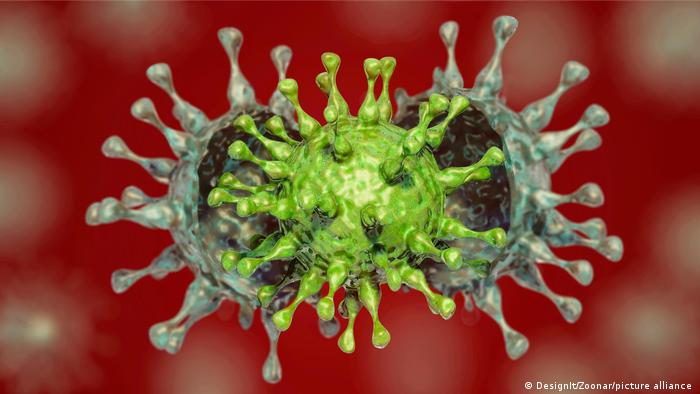The European Union’s disease control agency on Wednesday (06/23) called for a faster vaccination in Europe, predicting that the delta type of Covid-19 virus – a mutation first recorded in India and highly transmissible – would account for 90% of all cases. in the bloc countries by the end of August.
“It is very likely that the delta variant will spread more intensely this summer,” Andrea Amon, director of the European Center for Disease Control and Prevention (ECDC), said, referring to the warmest season of the year, which begins in summer. Amid the easing of health restrictions in many European countries due to low infection rates.
Amon cautioned that current data indicates that individuals who received only one vaccination dose are still susceptible to contracting variable disease, although he said the second injection provides a high level of protection. So I encouraged people to take the second dose as soon as possible.
Between 40% and 60% are more contagious
The ECDC found the delta variant to be transmitted between 40% and 60% more than the alpha variant, which was first seen in the UK and is currently dominant across the continent. The agency expects this delta strain to continue spreading rapidly, accounting for up to 70% of all infections in Europe as early as August.
The agency notes that “the delta variant is more transmissible than other circulating variants, and we estimate that by the end of August it will account for 90%” of new cases in the EU.
According to the organization, about 30% of people over the age of 80 and about 40% of people over the age of 60 have not been fully vaccinated on the premises. “At this stage, it is necessary to give the second dose of the vaccine within the minimum time allowed after the first dose,” Amoun stressed.
The center also urged caution in easing health restrictions, warning that this could lead to a “rapid and sharp rise” in infections among all age groups. As a result, the European official said, there may be an increase in hospitalizations and deaths, “which could reach the same level as in the fall of 2020, if no further measures are taken”.
md (AFP, ots)
-
Alternatives to the new corona virus
Various denominations of the dynasty
The World Health Organization (WHO) has specified that new variants of the coronavirus are now called letters of the Greek alphabet and should not be identified by where they were first discovered. Scientists have further criticized the use of different names for the strain discovered in South Africa, such as B.1.351, 501Y.V2, and 20H/501Y.V2.
-
Alternatives to the new corona virus
Scientific names remain valid
The World Health Organization urged countries and the press to adopt the new nomenclature of variants and to avoid associating new strains with places of origin. The organization added, however, that the new names do not replace scientific names, which should continue to be used in academic work.
-
Alternatives to the new corona virus
alpha variable
The B.1.1.7 variant was discovered in September 2020 in the United Kingdom and has spread worldwide. According to a study published in March in Nature, there is evidence that the alpha variant is 61% more lethal than the original virus. Among men over 85, the risk of death increases from 17% to 25%. For women in the same age group, 13% to 19% at 28 days after infection.
-
Alternatives to the new corona virus
beta variable
Researchers identified a B.1351 variant in December 2020 in South Africa. The strain affects younger patients and is associated with more severe cases of the disease. Scientists have sequenced hundreds of samples from across the country since the start of the epidemic and have observed a shift in the epidemiological landscape “particularly with younger patients developing severe forms of the disease”.
-
Alternatives to the new corona virus
Scope variable
The P.1 variant was first detected on January 10, 2021 by Japan in passengers arriving from Manaus. Originally from Amazonas, it spread to Brazil and other neighboring countries. The strain has 17 mutations, three of which are in the spike protein. Perhaps it is the latter that allows the virus to penetrate cells more easily and then multiply.
-
Alternatives to the new corona virus
delta variable
Studies have suggested that variant B.1,617, discovered in October 2020 in India, causes symptoms different from those of other strains, is significantly more contagious and appears to increase the risk of hospitalization. “The virus is smartly adapting. Many patients get negative test results but develop severe symptoms,” explained a doctor from New Delhi.
-
Alternatives to the new corona virus
Searching for unification
The new standard was chosen after “extensive consultation and review of several naming systems,” says the World Health Organization. The process took months and among the suggestions for standardization were the names of Greek gods, religions and plants or simply VOC1, VOC2, etc.
-
Alternatives to the new corona virus
Controversial names and nicknames
Since the beginning of the pandemic, the names used to describe Sars-Cov-2 have sparked controversy. Former US President Donald Trump used to call the new coronavirus the “China virus” as a way of trying to blame the epidemic on the Asian country. The virus was first detected in the Chinese city of Wuhan.
-
Alternatives to the new corona virus
New strains can be more dangerous
Viral mutations are common, but most of them do not affect the ability to transmit or cause serious pathological manifestations. However, some mutations, such as those in variants of the coronavirus emerging in the United Kingdom, South Africa and Brazil, can make it more contagious.
-
Alternatives to the new corona virus
Link to place of origin
Historically, new viruses often took names associated with the place of discovery, such as Ebola, which derives its name from one of the Congolese rivers. However, this pattern may be inaccurate, as with the Spanish flu of 1918. The origins of this virus are unknown, but it is believed that the first cases appeared in the US state of Kansas.
Author: Roselaine Wandscheer












